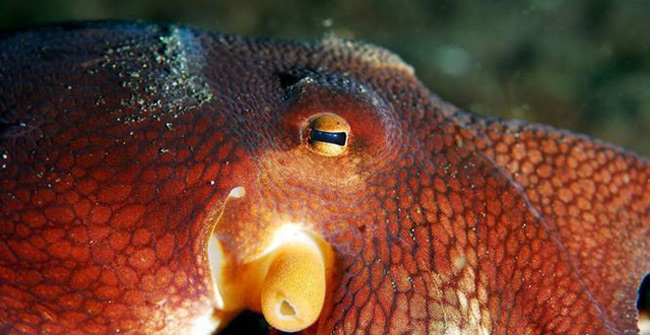Octopus drinking ecstasy has a human-like reaction
In a rather odd but shocking study conducted by Dr. Gül Dölen of the Johns Hopkins University of Medicine (USA), scientists gave the octopus 'enjoyment' of MDMA ecstasy and looked at their reactions. . Surprisingly, the octopus finally did the same thing as humans.

Humans and octopuses have a completely different appearance, and of course the human brain and octopus are not the same as the brains of any mammal, but in a recent study, just one more The only drug we will see is more like this 8-legged invertebrate aquatic animal than we still think.
First, male octopus and water baths were included containing MDMA for half an hour, then dropping them into a multi-compartment tank. In it, some empty compartments, and one compartment drop a cage containing a male octopus (no ecstasy bath). Everything started to become really strange.
Normally, when 'awake' octopuses are released into this experimental tank, they often seek to avoid single male octopus. They often ignore or avoid contact with other octopus and act as if they don't care about the surroundings.
But when the 'drug-infused' octopuses were left in the tank, they immediately actively sought physical contact with the captive male.
Dölen said: 'It is not a matter of time, but qualitative. Octopuses tend to hug into cages and put their mouths on cages. This is very similar to how people react to MDMA, they often touch each other '.
The "love drug " seems to be affecting the brain of invertebrates very similar to the human brain.
Extremely clear behaviors in these experiments and studies can help open new doors to understand how animals socialize and what prevents or promotes sensory behavior in the dynamic world. object.
This study is published in Current Biology.
- New discovery of the 'horrifying hallucination' of ecstasy
- 'Relay' noise music for ecstasy
- Ecstasy causes destruction of brain cells
- Octopus - one of the smart species does not use the brain
- Detecting octopus 'super small' at sea
- The genius of the ocean? Please call the octopus name!
- Training octopus into the world's first photographer
- Video: Found strange octopus near Hawaii
- The little-known dark secret of the octopus has now been discovered by science
- A small amount of ecstasy is also harmful to the brain
- Scientists absolutely warn against raising octopus
- The video of the octopus escapes the egg bag causing fever in the online community
 Animal 'suffering' after hibernation
Animal 'suffering' after hibernation Why do goats climb well?
Why do goats climb well? Scientists were surprised to see chimpanzees eating turtles
Scientists were surprised to see chimpanzees eating turtles Giant catfish died deadly due to drought in Thailand
Giant catfish died deadly due to drought in Thailand First time filming the moment an octopus shoots rocks at predatory fish
First time filming the moment an octopus shoots rocks at predatory fish  Octopus jumps on the seabed 4,800m deep
Octopus jumps on the seabed 4,800m deep  The octopus sacrifices its arm to escape the eel
The octopus sacrifices its arm to escape the eel  Diver gets scared when being led by an octopus to a tombstone on the seabed
Diver gets scared when being led by an octopus to a tombstone on the seabed  Why do octopuses eat eggs and gnaw their hands?
Why do octopuses eat eggs and gnaw their hands?  Find out why the octopus 'commits suicide' after having sex with its partner
Find out why the octopus 'commits suicide' after having sex with its partner 